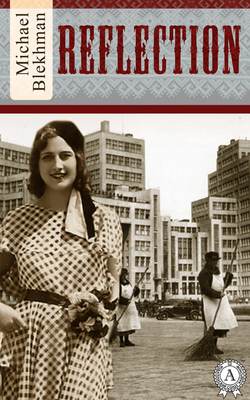Читать книгу REFLECTION - Michael Blekhman - Страница 6
На сайте Литреса книга снята с продажи.
VI
ОглавлениеIn daycare, Klara was almost as much in charge as the adults. She didn't know why that happened and never thought about it. Everybody simply respected her opinion. Probably that happened because nobody but her actually had opinions, except, of course, the adults. She took the lead in all games (tag, hide-and-seek, anything), and she was never 'it', only when she really wanted to and not when it was her turn (when did Stolberg ever have a bad turn?)
At home she was happy, too, even more than simply happy. Klara would come home from daycare, and later from school, which turned out to be special, as special as their Pushkin Entry. She would rush into their amazing apartment that before Vladimir Fedorovich moved in was always empty. There were lots of delicious food, even caviar, but Mom was never there. She traveled for work: to Central Asia, the Caucasus, Siberia, Lake Baikal, the Crimea, Lake Balkhash, uranium mines. Maria Isaakovna would go from one place to another on a special small airplane. She was a high-class construction engineer who never had any conflicts with those who sent the airplane to fetch her: I never let myself overstep my bounds and never told anybody what I was doing, including about the uranium mines.
At home, Klara did endless homework, which she didn't dislike. She also had stamps, coins, and a white baby grand piano. There were hundreds or thousands of books that could be easier read than counted, as well. Klara learned to read the same way Maria learned to swim. Only, she was three, not four then. That's why she always had more fun at home than outside. Everywhere but at home she felt how much she missed her parents, which was something she hardly ever perceived when she was home because there she had the aura of the yearned-for eighteenth century, stamps with haughty Queen Victoria and King George who looked neither like Queen Victoria nor like each other, silver rubles of Peter the Great's and Tsar Nicholas's times.
Then Vladimir Fedorovich came into their lives, and things got better. He smiled, was always on her side, never got frazzled, let alone annoyed (when did Vladimir Fedorovich ever get annoyed?), and helped any way he could including coin and stamp collecting, the latter especially, even though I could never understand the fascination with all these useless kings and queens. Our stamps are a lot more interesting. Well, what can you expect from a child?
He took Klara to the Shevchenko Gardens, to the Pioneers' Palace to see the New Year's tree, and for all kinds of festive occasions. At the Pioneers' Palace she was once photographed with her gift, sitting in the lap of Postyshev, a high-ranking Soviet official, and Maria Isaakovna was very proud of this picture. Vladimir Fedorovich just smiled, and even though he said nothing, he kept thinking that it wasn't clear who should have been more proud.
He kept taking Klara around – to the beautiful Gorky Park and the endless Lesopark, down the Pushkinskaya Street that kept changing with every passing year, and the Basseinaya Street that was clanging with tram bells and thumping at the rail junctures, down the dreamy Chernyshevskaya Street.
